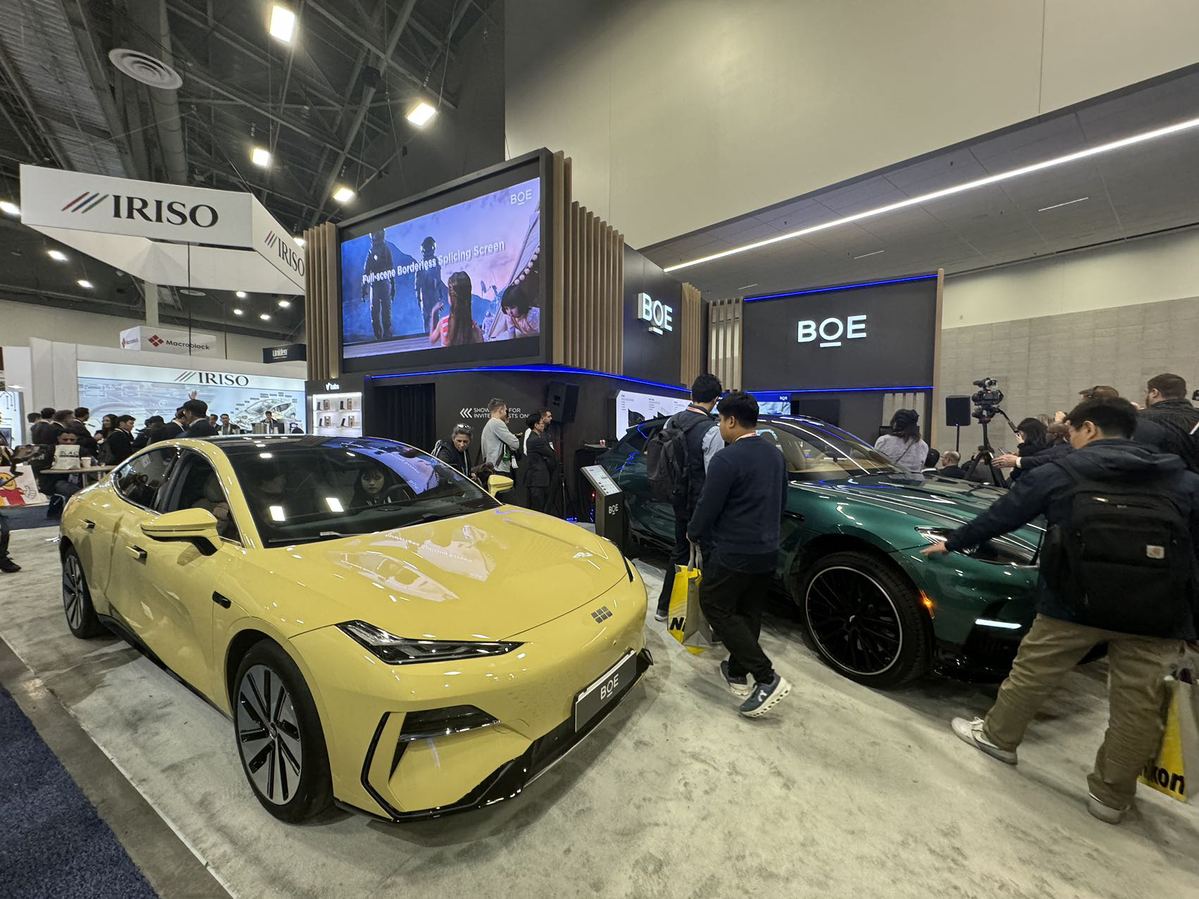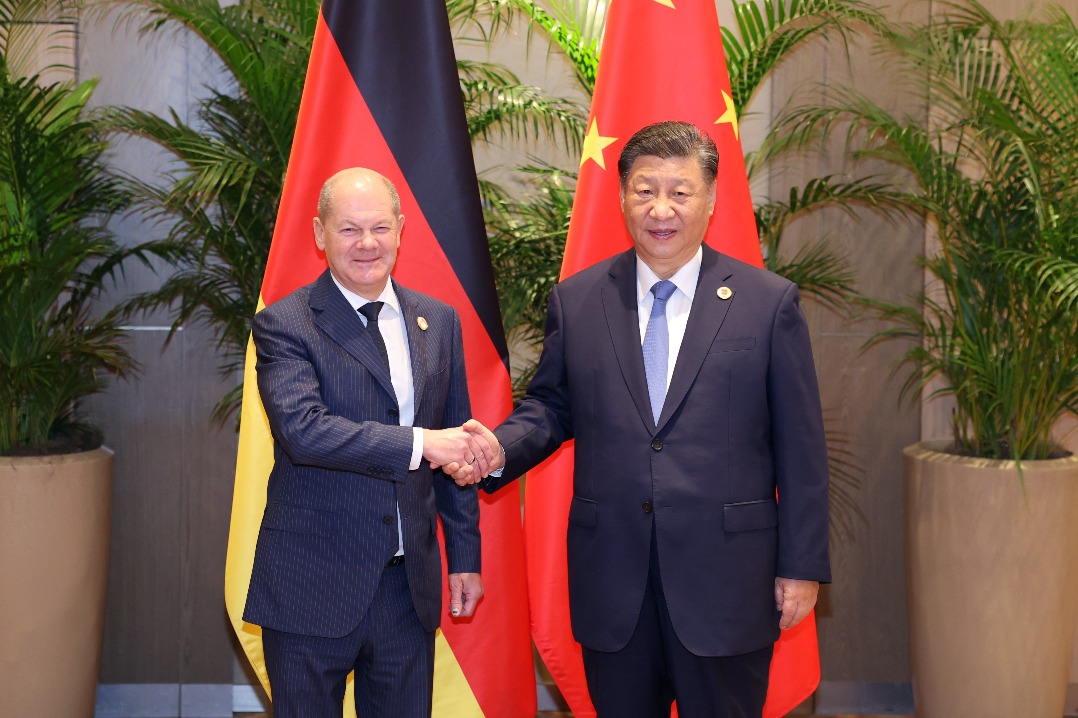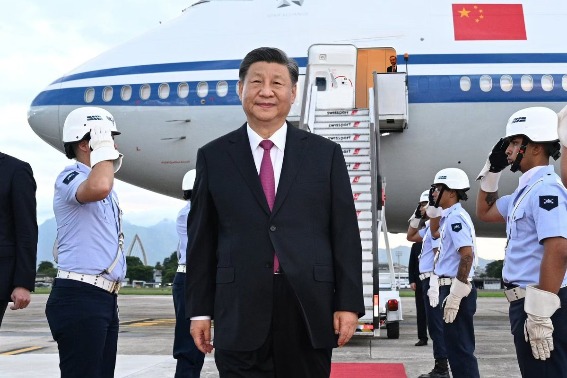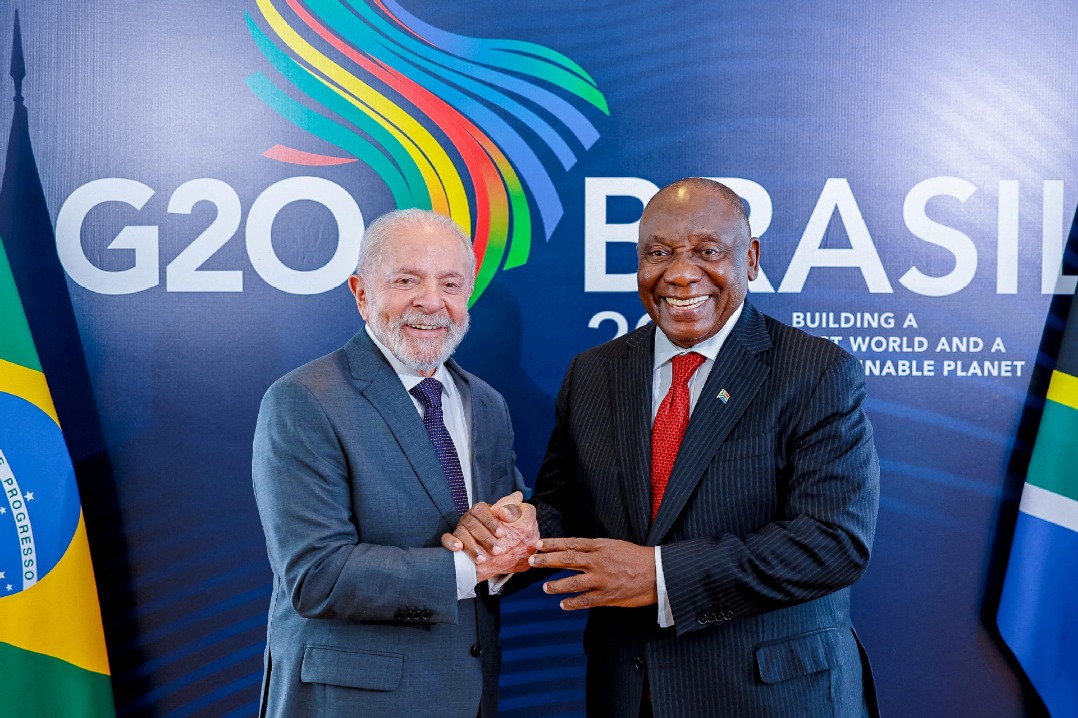Chinese EV startups return to CES
By MINGMEI LI in Las Vegas | chinadaily.com.cn | Updated: 2024-01-10 11:14

Chinese startups in the EV industry have returned to CES this year, showcasing new technologies that demonstrate the application of new energy and electric vehicles in various scenarios.
Nearly half the exhibitors at the event in Las Vegas (Jan 9-12) are international participants, with a notable increase in Chinese companies.
Those companies are featuring artificial intelligence as the main concept in a variety of their EV products, while also making connections with 5G technologies, AR/VR, big data, energy and power, robotics, video and audio technologies.
"We are seeing, especially compared to the last two years, a lot of growth across the pack, and especially from China as well,'' Jessica Boothe, the director of market research at the Consumer Technology Association (CTA) told China Daily. CTA puts on the multiday CES event.
By combining distinctive characteristics and strengths from China with global innovative concepts, the startups are exploring fresh opportunities in the international market.
"Our skateboard chassis is an application of AI in the execution and control layer, innovating in both technology and business models," Paul Li, founder and CEO of EV startup company U POWER Technology, which has offices in both China and US, told China Daily.
The company's new product is the most energy-efficient in its class globally among electric vehicles, with the highest global energy efficiency, almost double the efficiency of mainstream competitors in the American market, he said.
China's first mass-producible skateboard chassis-by-wire, which allows for smart EV customizations at low costs with efficiency. The company's Cargo Van product — which originated in China but was developed with technology in the US — has now received 53,000 orders from the US, Japan, EU and the Southeast Asia region.
With collaboration with top chip companies Nvidia and Renesas on the computing platform for scalable computing power, the company's research and design team in China also combines the Chinese EV market's automotive engineering and supply chain strengths to make the product more competitive internationally.
"China is a leader in the electric vehicle industry; we also want to help other global players excel in this industry. Ultimately, our goal in making electric vehicles is to foster technology and sustainability," he said.
"The trade frictions [between the US and China] present significant challenges for all our businesses as startups. Our approach is to adapt from the beginning, seeking opportunities within this context, integrating internal resources, and balancing globalization with localization."
NaaS, the first EV-charging company from China listed on the Nasdaq, aims to expand its influence in the global clean energy sector by leveraging its successful business model in China and aligning with US market dynamics.
"Besides the basic infrastructure of charging piles, we also demonstrate the in-depth operation and maintenance, combining digital scenarios to form a one-stop charging service station for our customers," Zhai Yubo, general manager of NaaS, told China Daily.
The company has connected a total of 73,000 public charging stations in China, and the number of charging piles connected has exceeded 730,000.
An owner of a new EV won't refuel at a roadside station as traditional gasoline vehicles do. New EVs inherently offer digital service capabilities, he said.
Also, the company is going to launch its new product, a "charging robot'', combining AI, big data and the internet.
"We have developed a mobile charging hardware solution, significantly enhancing the flexibility and breadth of future charging options," he said. "We aim to display products that combine China's representative IoT and digital capabilities.''
"The potential for collaboration in new energy charging far exceeds competition, as everyone in this field is witnessing rapid technological development and integration," he said.
"During international collaboration, every country is eager to see new models and products. So for Chinese companies, this represents a significant opportunity, especially when we leverage China's unique characteristics and advantages in new energy development to further expand our overseas business," he added.
Established in 2021, AC Future is showcasing the company's electric recreational vehicle product at the exhibition, combining new concepts on travel and lifestyle with intelligence and sustainability, transferring traditional RV into a digital home.
The company's headquarters is in California, and it has a strong team in China, AC Future President Rich Schmidt told China Daily.
"Most of the electric vehicles in the world, most of the supply chain come from China," he said. "It allows us to bring in some high-quality technologies to go into our innovative product.
"The China market is two times the size of the North American market, so as the vehicle production grows, the technology is going to grow quicker," he said. "It allows us to leverage that technology and to help us be innovative."
























